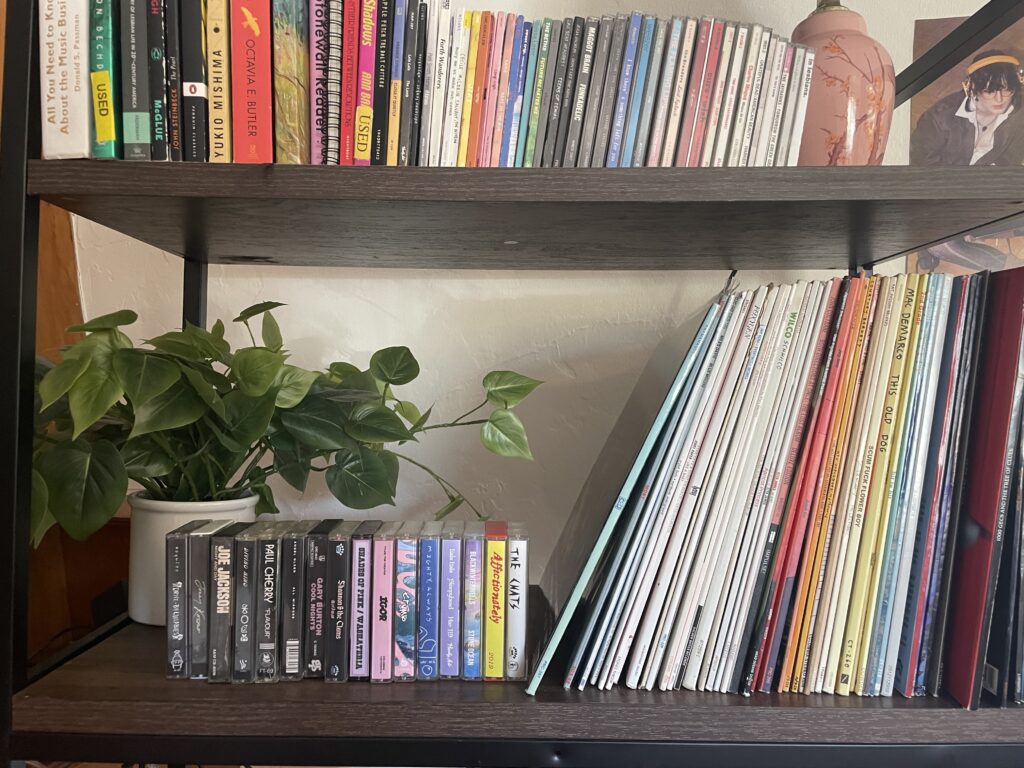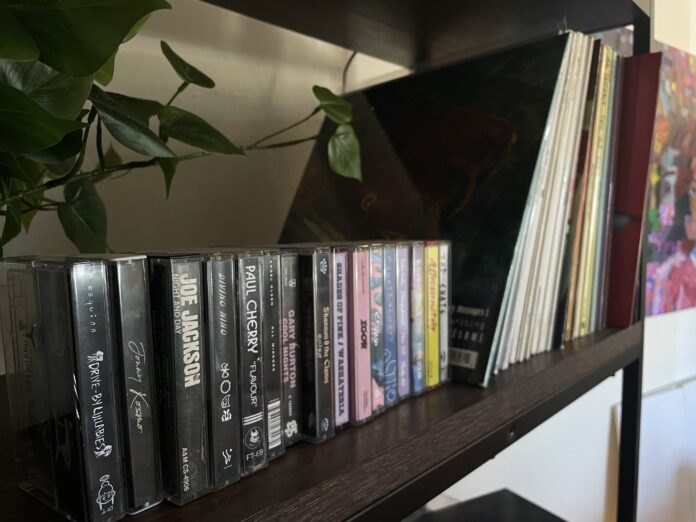A walk around campus greets the ears with all sorts of sounds. Be it in the dorms, the Academic Quad or Booth Hall — music speaks all over campus.
The vinyl record’s continued popularity and success contrasts with the fact that in 2022 a person can share over 80 million tracks on Spotify. Vinyl’s financial profits are at its highest in decades. There is another physical form of music media that has seen some limited resurgence: the cassette. The cassette has long been derided by audio purists for its poor sound quality and left in the company of obscure music fans, audiophiles and your grandmother’s junk drawer. The cassette may be rejected by some, but it is loved by others.
Jacknife Records & Tapes in Atwater Village hosts a collection of both vinyl and cassette tapes. Store owner Trevor Baade said he thinks popularity is related to timing.
“It’s not that anything has truly come back — it’s just that from nothing, it seems like a lot,” Baade said. “The cycle goes back around to where it’s the right age group, the right throwback type of music that connects with people.”
Cassette enthusiast Cleo McKenzie (junior), better known as Tamagotchi Massacre to hyperpop fans, said she has released her own music as cassettes.
“The online hyperpop scene is really one of the first music scenes to develop almost entirely online,” McKenzie said. “There’s no physicality in the hyperpop scene. Music can be created on a computer and uploaded so easily to SoundCloud, but it can be taken down easily too. People like to be physically attached. I can’t speak for everybody, but I like to be physically attached to my history.”
Ari Borne, a senior at the California Institute of the Arts, said his history includes listening to cassettes in his Volvo V70 as a teen.
“When I was growing up, I was taught to really praise and respect physical media more than just having something downloaded because having your favorite album on vinyl and listening to that is way better than a computer,” Borne said.
Borne said he most values his Shonen Knife and Bad Brains cassettes.
“The [Shonen Knife] was a random pick up actually, but it’s something that I hold near and dear,” Borne said. “It’s something that I still listen to, and it’s such a fun album.”
According to Baade, analogue media’s return to cultural relevance could be a reaction to the massive amount of options afforded by streaming — sometimes you just want to focus on one thing.
“There’s just too much information all the time,” Baade said.
While Bone and McKenzie both said that streaming’s accessibility is hard to beat, Bone, whose music is on Spotify, said on a good day he will make only 1 cent from Spotify.
“Generally, it’s more impressive to bring out a crowd on a Tuesday night than it is to have over 10,000 streams,” Bone said.
Cassette distribution is an alternative option for artists since cassettes can be sold for a bigger markup relative to its production cost. According to McKenzie, cassettes hold an incredibly important purpose, and they give the DIY scenes a way to support themselves and to create physical music.

“[They] make it so that you can financially support artists directly,” McKenzie said. “I think that’s why I love cassettes. That’s what matters to me.”
![]()































